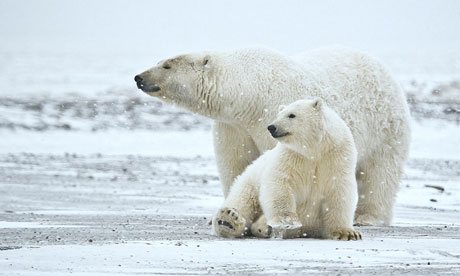Reading Ken Silverstein’s “The Secret World of Oil” is like picking up a rock in the middle of the night and shining a flashlight at the creepy, crawly things found beneath. The emphasis is on the word secret since many of the men he scrutinizes prefer it that way. Even when their activities remain within the law, their assault on ethics and decency would provoke a Sodom and Gomorrah punishment from a just god if one existed. Is moral turpitude, criminality and a bestial level of greed intrinsically connected to making a living as a middleman in the petroleum industry? That is the conclusion a reader would draw after reading the fast-paced and entirely entertaining tour led by Ken Silverstein, our Virgilian guide to a Dante’s Inferno fueled by oil and gas.
Silverstein manages a juggling act that puts Philippe Petite to shame. While his record of investigative journalism, especially that part of it dealing with energy industry sleazebags, is well-established, he manages to ingratiate himself with some of the major players even managing to establish friendships. Of course, if one of them is gazillionaire Ely Calil, an oil middleman who is one of the richest men in England, there are certain rewards. Dinner on Calil’s dime would include on one occasion “a bouillabaisse, small plates of scallops in a truffle sauce, and veal loin with poached pear”. One imagines Silverstein taking notes under the table surreptitiously for a future article. If details such as this give the reader a sense of the opulence enjoyed by oil tycoons no doubt within the law, it is really the business side of things revealed by Silverstein that make you wonder if he will ever be invited to dinner again.
In 2002 Ely Calil was the middleman between Elf Aquitaine, a French oil company, and Sani Abacha, the Nigerian dictator. Elf was bribing Abacha to get preferential treatment for oil drilling in a country that is a poster child for what some on the left call the resource curse. Calil and two other Lebanese smooth operators split a commission of $70 million for their part in the deal. Among a long string of human rights abuses, Abacha ordered the hanging of Ken Saro-Wiwa, a champion of the Ogoni people whose homeland oil companies had polluted beyond repair.
Calil was also involved with skullduggery in Equatorial Guinea, another African oil-producing nation, even though like many of the people operating in the shady oil business he “vociferously” claimed his innocence. In 2004 a group of sixty South African and European mercenaries were arrested in Zimbabwe in the act of purchasing weapons to be used against the government of Equatorial Guinea, a nation with a population of under a million and swimming in petroleum. They intended to replace the current dictator with one from the past, one Severo Moto. Among the arrested conspirators was none other than Mark Thatcher, Maggie’s miscreant son.
On the strength of his hard-hitting pieces on the Obiang kleptocracy in Equatorial Guinea, Silverstein was invited to meet with Moto in Washington by a PR consultant working on his behalf. Calil was at the meeting as well and thus began the friendship that fostered lavish meals of scallops in truffle sauce and hair-raising exposes of oil industry criminality.
One could hardly imagine Silverstein ever using his finely honed journalistic skills to burnish the reputation of a former big-shot like Severo Moto especially when it is so much more rewarding to take down the Obiang clan. No  matter Moto’s intentions, the role of people like Mark Thatcher was to make sure that a new president would be more responsive to global capital than the long-suffering population.
matter Moto’s intentions, the role of people like Mark Thatcher was to make sure that a new president would be more responsive to global capital than the long-suffering population.
Chapter three of “The Secret World of Oil” is devoted to an up-close examination of Teodorin Obiang, the son of the man who rules Equatorial Guinea with an iron fist. If they created a pictorial version of the Oxford English Dictionary, his portrait would adorn the entry for decadent. Born in 1971, the future dictator is a throwback to the playboys of the 1950s such as Porfirio Rubirosa of the Dominican Republic. Civilization being on a steep descent over the past 50 years or so, Rubirosa comes across as a model of Calvinesque restraint compared to Obiang.

The excremental Teodorin Obiang: son of a murderous kleptocrat and Western puppet.
Obiang owned a 15 thousand square foot house in Malibu, California where his days were devoted to shopping on Rodeo Drive and his nights to partying at discos in the company of his entourage. One has to wonder why Bob Dylan would want to live in Malibu as long as someone like Teodorin Obiang could be included as a neighbor. Among Obiang’s obsessions were expensive cars, to the point where it became virtually psychotic as Silverstein reports:
When it came to spending habits, Teodorin wasn’t to be outdone by his Hollywood-star neighbors. He owned at least three dozen luxury cars, including seven Ferraris, five Bentleys, four Rolls-Royces, two Lamborghinis, two Mercedes-Benzes, two Porsches, two Maybachs, and an Aston Martin, with a combined insured value of around $10 million, according to the Senate investigation. There were far too many cars to keep at the estate, so Teodorin rented storage space in the garage of the Petersen Automotive Museum on Wilshire Boulevard and had his drivers fetch the one he wanted for an outing, a choice that sometimes depended on his attire. “I’m wearing blue shoes, so get me the blue Rolls today,” he once told [his chauffeur] Giacalone.
His favorite was a Bugatti Veyron, a car that can reach speeds of more than 250 miles per hour and sells new for about $2 million. One night, Teodorin parked his toy near the entrance of L’Ermitage, a favorite hangout where he’d gone for drinks. When he saw gawkers stop to admire it, he sent Giacalone back to Malibu by cab so Giacalone could drive back his second Bugatti to park next to it.
With money to burn, the Obiang clan could be expected to hire its own army of PR specialists the way that their rival Severo Moto had. I always had my suspicions that some of their oil wealth might have been lubricating the Militant newspaper of the Socialist Workers Party, a tiny sect that once played a major role in the Vietnam antiwar movement, so much so that I was persuaded—alas—to join.
In 2009 the socialist newspaper told its readers that “revenue taken in…from oil contracts is being used in part to develop basic infrastructure on which modern industry and rising labor productivity depend” and that as a result “hundreds of thousands gain much easier access to health-care facilities, schools, markets, and jobs.” The reality had nothing to do with this gushing portrait. Silverstein reports that 4/5ths of its population lives below the poverty line and one in three dies before the age of 40—all this while the heir apparent will only be satisfied by two Bugattis, not one.
“The Secret World of Oil” is not just a lively account of wickedness. It is also an informative guide to how corruption lubricates the industry largely based on lubricants. If the oil industry is best known for its big players like Exxon and BP, Silverstein’s book fills in the gaps. Without lobbyists, brokers, handlers, consultants, and other pimps (mostly male, although there are some females), the industry would grind to a halt. There are chapters on Tony Blair and Neil Bush that lends credence to the proposition that when you are dealing with oil, liberals and conservatives are equally squalid. Blair in particular comes across as someone with a love of money as pathological as the Equatorial Guinean kleptocracy.
Silverstein hones in on Tony Blair’s gaseous speeches that earn him $20 million per year, mostly paid by corporate and governmental bigwigs looking to exploit the connections he has built up over the years. Silverstein notes that those speeches make Mitt Romney sound like Malcolm X by comparison.

Blair: as repulsive a political prostitute as they come, poster boy for world imperialist corruption. This war criminal should be in chains in a dungeon instead of collecting fat ridiculous fees for useless speeches no one gives a hoot about.
There are very few investigative journalists that are as much fun to read as Ken Silverstein, except for Jeff St. Clair of CounterPunch and his late co-editor Alexander Cockburn. As such it is no accident that Ken Silverstein launched CounterPunch as a print publication back in 1993, when the Internet was in its relative infancy. After leaving it in the good hands of St. Clair and Cockburn in 1996, Silverstein went on to fight the good fight in the pages of the Washington Post, Harpers, Mother Jones, and the Nation over the years. In my view, he continues the great tradition of investigative reporting of people like I.F. Stone, just as CounterPunch does. That should be recommendation enough to pick up a copy of “The Secret World of Oil” straightaway.
Louis Proyect blogs at http://louisproyect.org and is the moderator of the Marxism mailing list. In his spare time, he reviews films for CounterPunch.




 ROLAND VINCENT, an attorney, political strategist, and former stockbroker, is an animal liberationist and social justice activist. He is dedicated to formulating and advancing tactics and strategies that make sense in a complex and distracted world. He currently serves as The Greanville Post’s Special Editor for Animal Rights, the Environment, and Socialism.
ROLAND VINCENT, an attorney, political strategist, and former stockbroker, is an animal liberationist and social justice activist. He is dedicated to formulating and advancing tactics and strategies that make sense in a complex and distracted world. He currently serves as The Greanville Post’s Special Editor for Animal Rights, the Environment, and Socialism. 



 .
.